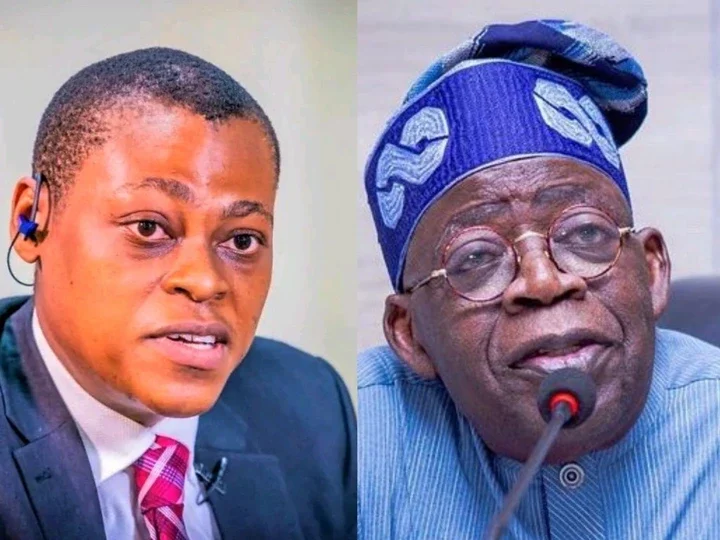
Oseni Rufai fires back at Bayo Onanuga over “economic illiterate” remark as Nigeria’s debt hits ₦152 trillion

A heated exchange erupted on social media after Nigerian journalist Oseni Rufai publicly confronted Bayo Onanuga, the Special Adviser to President Bola Tinubu on Information and Strategy, over a personal jab labeling him an “economic illiterate.”
The controversy followed Rufai’s remarks on Nigeria’s ballooning public debt, which recently crossed ₦152 trillion, according to verified figures from the Debt Management Office (DMO).
Rufai, known for his sharp economic analysis and fearless questioning on Arise TV, had cited DMO data showing that Nigeria’s total public debt stock surged to ₦152.4 trillion as of June 30, 2025, a staggering rise from ₦87.4 trillion recorded in June 2023 — the month President Tinubu assumed office.
The increase represents roughly ₦65 trillion in just two years, fueled by a mix of fresh domestic borrowing, foreign loans, and the naira’s steep devaluation against major global currencies.
Rather than countering with figures, Onanuga fired back on X (formerly Twitter), branding Rufai an “economic illiterate” who “deliberately misleads the public with alarmist numbers.” Rufai quickly clapped back, demanding a fact-based debate instead of insults, and insisting that journalists have a duty to question government borrowing, especially as citizens bear the brunt of inflation and fiscal pressure.
The DMO’s latest report lends weight to Rufai’s concern. It confirms that Nigeria’s debt-to-GDP ratio remains below international benchmarks but warns that debt servicing costs now consume over 70% of federal revenues, an unsustainable trend that limits infrastructure funding and social programs.
Economists also note that while borrowing itself isn’t inherently dangerous, Nigeria’s revenue-to-debt ratio — one of the weakest globally — signals fiscal distress if reforms don’t accelerate.
Supporters of Onanuga, however, argue that public debt is standard in modern economies, emphasizing that Tinubu’s administration is operating within the 40% domestic debt-to-revenue ceiling recommended by fiscal authorities. They describe the loans as “strategic,” meant to fund infrastructure, stabilize the currency, and boost productivity in the long run.
Still, Rufai’s intervention has struck a nerve in an already divided political climate. Critics see his clash with Onanuga as symbolic of the wider polarization between media watchdogs and government communicators, where accountability often clashes with loyalty. The journalist’s response — calm yet firm — has drawn praise from Nigerians demanding transparency in fiscal management.
As the debt debate deepens, analysts predict continued tension between government officials defending expansionary borrowing and economists warning of a looming debt trap. Rufai’s challenge may have started as a personal spat, but it has reignited a crucial national conversation: how much debt is too much — and who will ultimately pay the price?
View the full conversation here
Egbon Bayo Onanuga abusing me because i stated the position of Nigeria’s debt. He called me economic illiterate—-a presidential spokesperson ooooo
— oseni rufai (@ruffydfire) October 24, 2025
Tell Egbon Bayo to challenge me with facts not abuses.
Has Nigeria not borrowed 152 trillion under Tinubu? pic.twitter.com/HB1TB2zTA7
Twitter Post
Visit website— Busterblog.com


